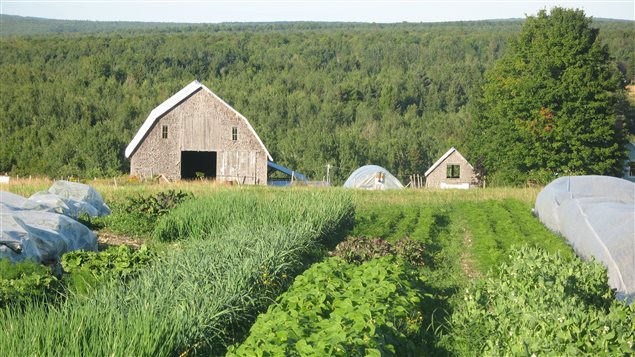Land grabs and the speculation in land acquisitions are a growing reality globally. These trends were the focus of a one-day conference near Montreal yesterday looking into the evolution and effect on farmers in the province of Quebec. The event brought together the David Suzuki Foundation, the Union of Quebec Agricultural Producers and Equiterre, to name a few of the participants.
Isabelle Joncas is an agronomist with Equiterre, a citizen’s group that grew out of the 1992 Earth Summit in Rio de Janeiro. She says it is better for the people of Quebec to have 30,000 farmers in the province than 10,000 big corporations owning our land, as is the case in many places around the world.
These so-called land grabs are a global concern. Countries such as China, India and Saudi Arabia have purchased large areas of land in Argentina, Indonesia, Australia and across the African continent. Canadian companies have been investing in land in foreign countries as well.
The 2008 global food crisis and the U.S. economic meltdown created a renewed interest in land. In 2004 in Quebec, land was $5,000 Cdn, per hectare; now it is $12,000. In the last five years more farmland has been purchased by investors with the value of transactions soaring, but the value of land for farmers has not increased at the same pace. The changes however, make it very difficult for young farmers to get a foothold, or expand their holdings.
The one-day conference was an opportunity to examine the challenges and propose solutions. Joncas says the emerging effects of climate change will put pressure on northern regions to expand and extend the farming areas as well as the season where possible.
Quebec, it was suggested, should be strengthening the laws protecting green zones, particularly in the areas surrounding cities.Limiting purchases to a maximum of 100 hectares per person per year, except in transfers of farmland between generations in the same family, was another suggestion, as is the practice in Prince Edward Island and Saskatchewan.
These are two of the provinces actively protecting their interests. Tiny, picturesque, Prince Edward Island, has limits on the amount of ocean-front acreage people who aren’t residents of the province can buy.
Farmland in Saskatchewan rose the most in value according to Farm Credit Canada‘s most recent report. It showed average farmland values increased by 14.3 per cent in 2014, following a 22.1 per cent increase in 2013.
While Saskatchewan has had laws restricting foreign investors from purchasing farmland it also recently restricted institutional investors, such as pension plans and administrators of pension fund assets and trusts from purchasing land.







For reasons beyond our control, and for an undetermined period of time, our comment section is now closed. However, our social networks remain open to your contributions.